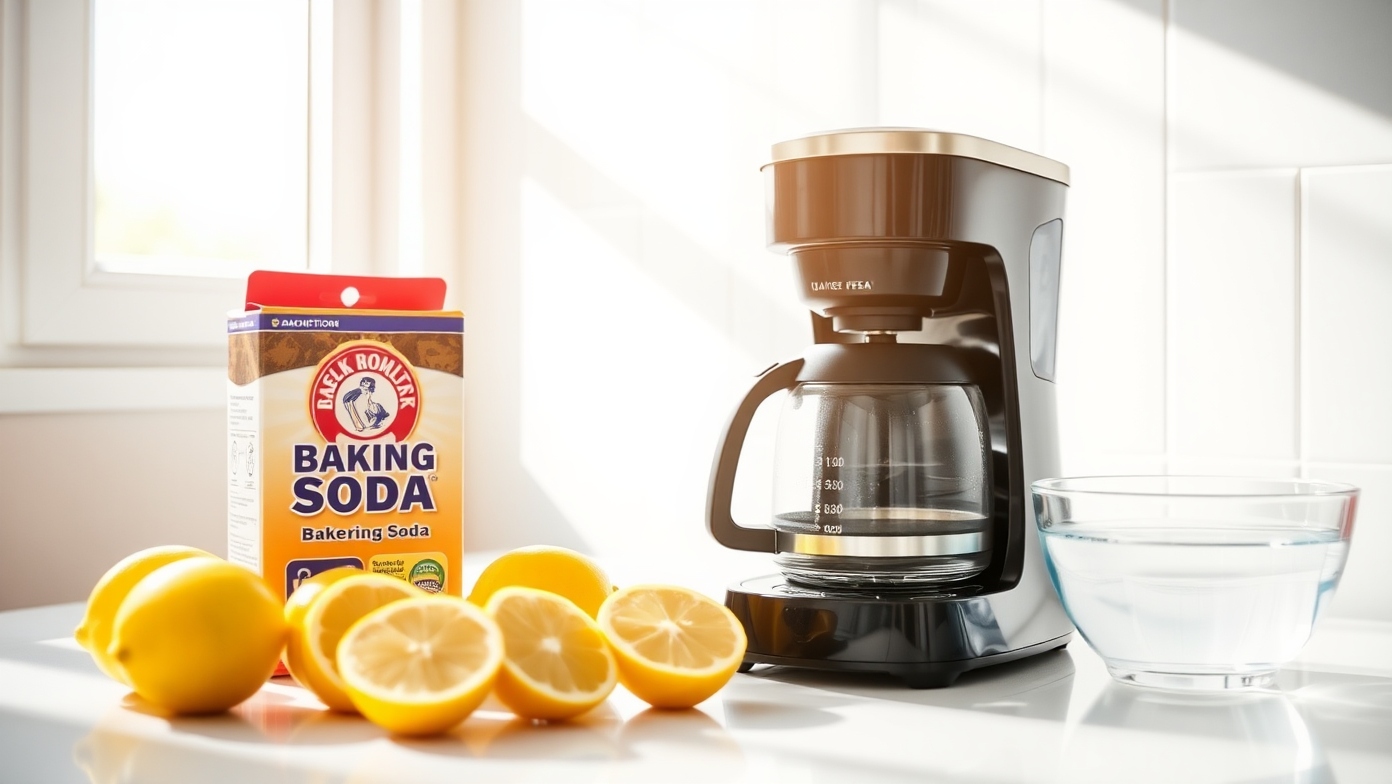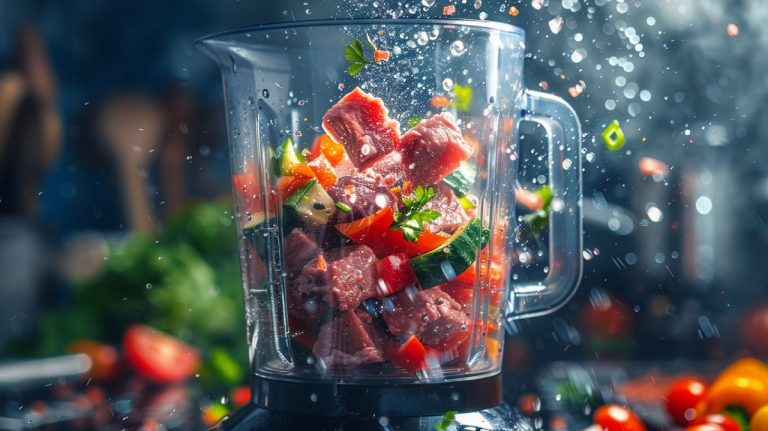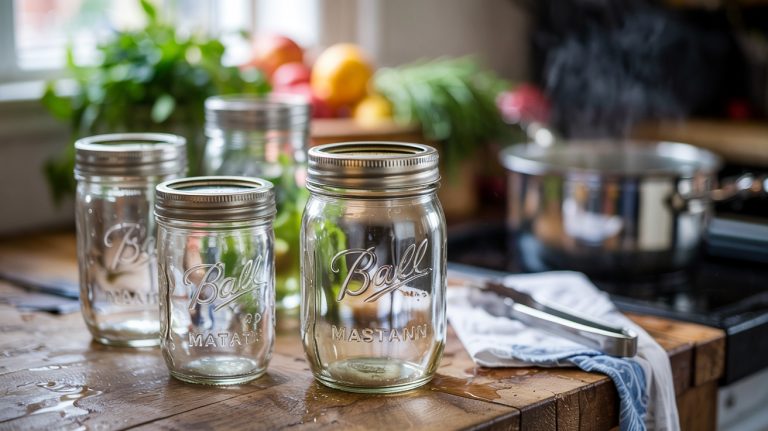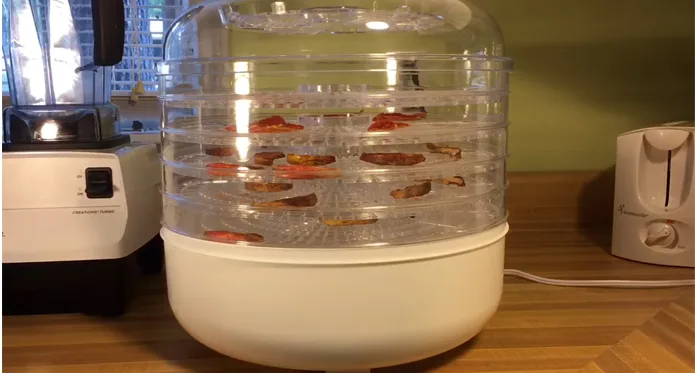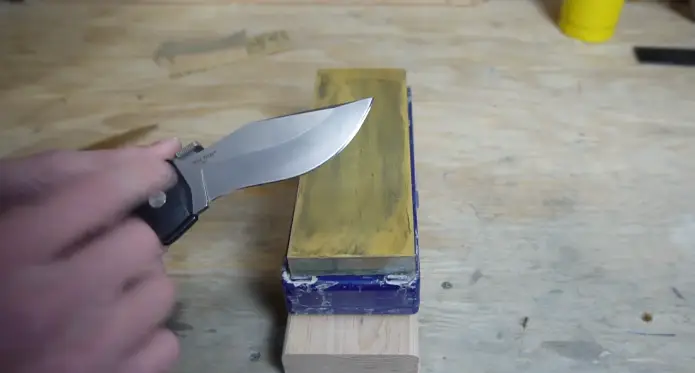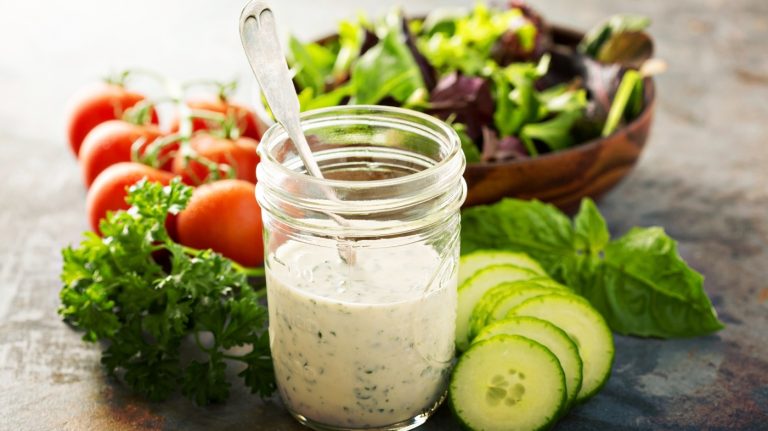How to Clean a Coffee Maker Without Vinegar: Easy Steps
To clean your coffee maker without vinegar, start by unplugging the machine and removing any leftover coffee grounds.
Mix equal parts of lemon juice and water or use a baking soda solution (two tablespoons of baking soda mixed with a cup of warm water).
Pour your cleaning solution into the water reservoir and run a brewing cycle without coffee in the filter. Let the solution sit for about 15 minutes, then run several cycles with plain water to rinse.
Regular cleaning will keep your coffee fresh and delicious, and you’ll discover more tips to guarantee your machine stays in top shape.
Key Takeaways
- Use a mixture of equal parts lemon juice and water to descale the coffee maker and remove odors effectively.
- Create a cleaning solution by mixing two tablespoons of baking soda with one cup of warm water to tackle stubborn stains.
- Run a brewing cycle with the cleaning solution, then rinse multiple times with plain water to eliminate any residues.
- Employ citric acid or hydrogen peroxide as alternative cleaning agents to remove mineral deposits without strong odors.
- Regularly clean the coffee maker every 1-2 weeks and use filtered or distilled water to minimize mineral buildup.
Step-by-Step Cleaning Techniques for Your Coffee Maker Without Vinegar
Cleaning your coffee maker regularly ensures that each cup of coffee tastes fresh and delicious. To start, unplug your coffee machine and remove any coffee grounds from the filter.
Next, mix a solution of baking soda and warm water, using about two tablespoons of baking soda for every cup of water. Pour this mixture into the water reservoir to help break down mineral deposits and eliminate buildup of odors.
Now, run a brewing cycle without any coffee in the filter. Once that’s complete, let the solution sit for about 15 minutes to work its magic.
Afterward, thoroughly rinse the coffee maker by running plain water through a brewing cycle twice. This helps clear out any remaining baking soda.
When you think about coffee compared to energy drinks, coffee is more than just a caffeine source; it offers rich flavors and aromas that energy drinks often lack. By keeping your coffee maker clean, you enhance the overall coffee experience, ensuring every sip is as enjoyable as the last.
For an alternative method, you can use lemon juice mixed with water in the same proportions. The acidity in lemon juice acts as a natural descaling solution.
Once you’ve got your machine clean, it’s the perfect time to try making espresso with your coffee maker. The freshly cleaned machine will give you a rich, flavorful brew. Just remember to rinse well to make sure no residue lingers.
Alternative Cleaning Methods for Your Coffee Maker Without Vinegar
You can use some natural ingredients and simple solutions to keep your coffee maker clean and fresh without the strong smell of vinegar. Here are a few effective alternatives:
Use Lemon Juice
Using lemon juice as a cleaning agent for your coffee maker offers a natural and effective alternative to harsh chemicals. Its high acidity makes it an excellent cleaning solution, capable of breaking down coffee stains and mineral deposits.
Additionally, just like how all cups, bowls, blades, and lids of Ninja blenders are dishwasher safe, lemon juice can help guarantee your coffee maker remains in top condition.
To start, mix equal parts of lemon juice and water. Pour this mixture into the water reservoir of your coffee maker.
Run a brewing cycle to allow the natural cleaning properties of lemon juice to descale your coffee maker. This process not only helps clean but also removes odors, leaving your machine smelling fresh.
After the cycle is complete, follow up with a couple of cycles using plain water to guarantee all lemon residue is washed away.
Additionally, if you notice any stubborn stains in your coffee pot, you can create a paste using lemon juice and a bit of baking soda.
Apply it to the stains, let it sit for a few minutes, then scrub gently and rinse thoroughly.
Other Natural Agents
Natural cleaning agents can work wonders for your coffee maker, providing effective alternatives to commercial cleaners.
If you want to try some cleaning methods without vinegar, consider these natural options: Additionally, using natural agents can help maintain the longevity and performance of your appliance, similar to how setting and managing vents on dehydrators enhances their efficiency.
- Lemon Juice: The acidity in lemon juice dissolves mineral deposits and tackles stubborn stains, leaving your coffee maker fresh and clean.
- Hydrogen Peroxide: A gentle disinfectant, hydrogen peroxide cleans and removes mineral buildup without leaving harsh chemical residues behind.
- Citric Acid: Found in citrus fruits like lemons and oranges, citric acid is a powerful cleaning agent that effectively targets mineral deposits and stains.
Risks of Using Vinegar
While regular cleaning is vital for your coffee maker’s performance, many people turn to vinegar as a natural solution. However, using vinegar comes with several risks that you should consider.
Its strong smell can linger in your machine, affecting the taste of your coffee long after cleaning. Additionally, vinegar’s acidic properties can cause damage to certain components of your coffee maker, particularly rubber seals and gaskets, which may lead to costly repairs.
For the best extraction and flavor concentration, maintaining your coffee maker properly is key, and explore alternatives to vinegar, such as using baking soda or citric acid for cleaning ideal flavor extraction.
Moreover, while vinegar is touted for its ability to eliminate bacteria and mold, it may not effectively remove all mineral deposits.
Over time, these deposits can build up, affecting your machine’s functionality and lifespan. There’s also a possibility that vinegar mightn’t fully eliminate existing bacteria and mold, potentially leaving harmful residues behind.
Lastly, relying solely on vinegar as your cleaning agent can create a cycle of buildup that’s tough to break.
Instead of risking damage and lingering odors, consider exploring alternative cleaning methods that can achieve a more thorough clean without the drawbacks of vinegar.
Maintenance Tips for Longevity
To keep your coffee maker running smoothly for years, establish a regular cleaning schedule of every 1-2 weeks.
Regular Cleaning Schedule
A superior-quality coffee maker can brew delicious coffee for years with proper maintenance and regular cleaning. By following a consistent care routine, you can ensure your machine remains in optimal condition, delivering rich and flavorful brews every time.
To ensure your coffee maker stays in top shape, establish a regular cleaning schedule.
- Daily Rinse: After each use, rinse the carafe and filter basket with fresh water to remove any coffee residue and odors.
- Weekly Deep Clean: Once a week, clean the coffee maker with a solution of baking soda and water. Mix one tablespoon of baking soda with a cup of water and run it through the brewing cycle to combat mineral deposits.
- Monthly Descaling: Every month, descale your coffee maker using a mixture of water and baking soda. This helps prevent the buildup of mineral deposits that can affect performance.
- Filter Replacement: Regularly replace your coffee filter to guarantee your brews stay fresh and free from any lingering tastes.
Use Proper Water
Using the right water can substantially impact the performance and longevity of your coffee maker. When you fill the water reservoir with water, opt for clean water that’s free from impurities.
Using plain water helps reduce the formation of water deposits, which can clog your machine over time. Instead of using vinegar to clean, you can maintain your coffee maker without vinegar by using a diluted solution of clean water.
To illustrate the benefits of proper water, here’s a quick comparison:
| Water Type | Impact on Coffee Maker | Recommended Usage |
|---|---|---|
| Clean Water | Reduces water deposits | Always use in the reservoir |
| Tap Water | May contain minerals | Limit usage; consider filtering |
| Distilled Water | Minimal deposits | Ideal for cleaning coffee machines |
Common Cleaning Mistakes to Avoid
Many coffee lovers unknowingly make cleaning mistakes that can harm their machines and affect the taste of their brews.
Here are some common pitfalls you should avoid:
1. Using Abrasive Cleaners: Steer clear of harsh chemicals or scrubbers.
They can scratch your coffee maker’s surfaces and damage non-stick coatings.
Stick to gentle options like baking soda or lemon juice.
2. Skipping Regular Descaling: Not descaling your coffee maker regularly allows mineral deposits to accumulate.
This buildup can impact performance and flavor, so make it a routine.
3. Neglecting Rinsing: After cleaning, failing to rinse the water reservoir thoroughly can leave behind residues from dish soap or other cleaning solutions, affecting your coffee’s taste.
4. Ignoring the Exterior: Don’t forget to clean the outer components.
Dust and grime can harbor bacteria, compromising your machine’s hygiene.
Frequently Asked Questions
What Can I Use to Run Through My Coffee Maker to Clean It?
Imagine a crystal-clear waterfall cleansing the rocks below. To clean your coffee maker, run a mixture of baking soda and water through it. Rinse thoroughly after, and your coffee maker’ll feel fresh and new again!
What Is a Good Substitute for White Vinegar for Descaling?
You can use lemon juice, baking soda, or citric acid for descaling instead of white vinegar. Hydrogen peroxide and specialized descaling solutions are also effective, ensuring your coffee maker stays clean and functions well.
Does Baking Soda Clean a Coffee Maker?
Yes, baking soda cleans a coffee maker effectively. Mix it with water, run a brew cycle, and let it sit. Rinse thoroughly afterward, and you’ll enjoy fresher coffee without unpleasant residues or odors.
Can I Use Hydrogen Peroxide to Clean My Coffee Maker?
Absolutely, you can use hydrogen peroxide to clean your coffee maker! It’s food-safe and effectively eliminates bacteria, improving coffee taste. Just mix it with water, run a brew cycle, then rinse thoroughly to finish.
Properly Clean and Care for Your Coffee Maker to Ensure Every Sip is a Celebration
By embracing these vinegar-free cleaning methods, you’re not just tidying up your coffee maker; you’re nurturing its soul.
Regular maintenance will keep your brews rich and flavorful, like a symphony of aromas dancing through your kitchen. Avoid common pitfalls, and your coffee maker will reward you with that perfect cup, day after day.
With a bit of care and creativity, you can transform your coffee routine into a delightful ritual, ensuring every sip is a celebration.

